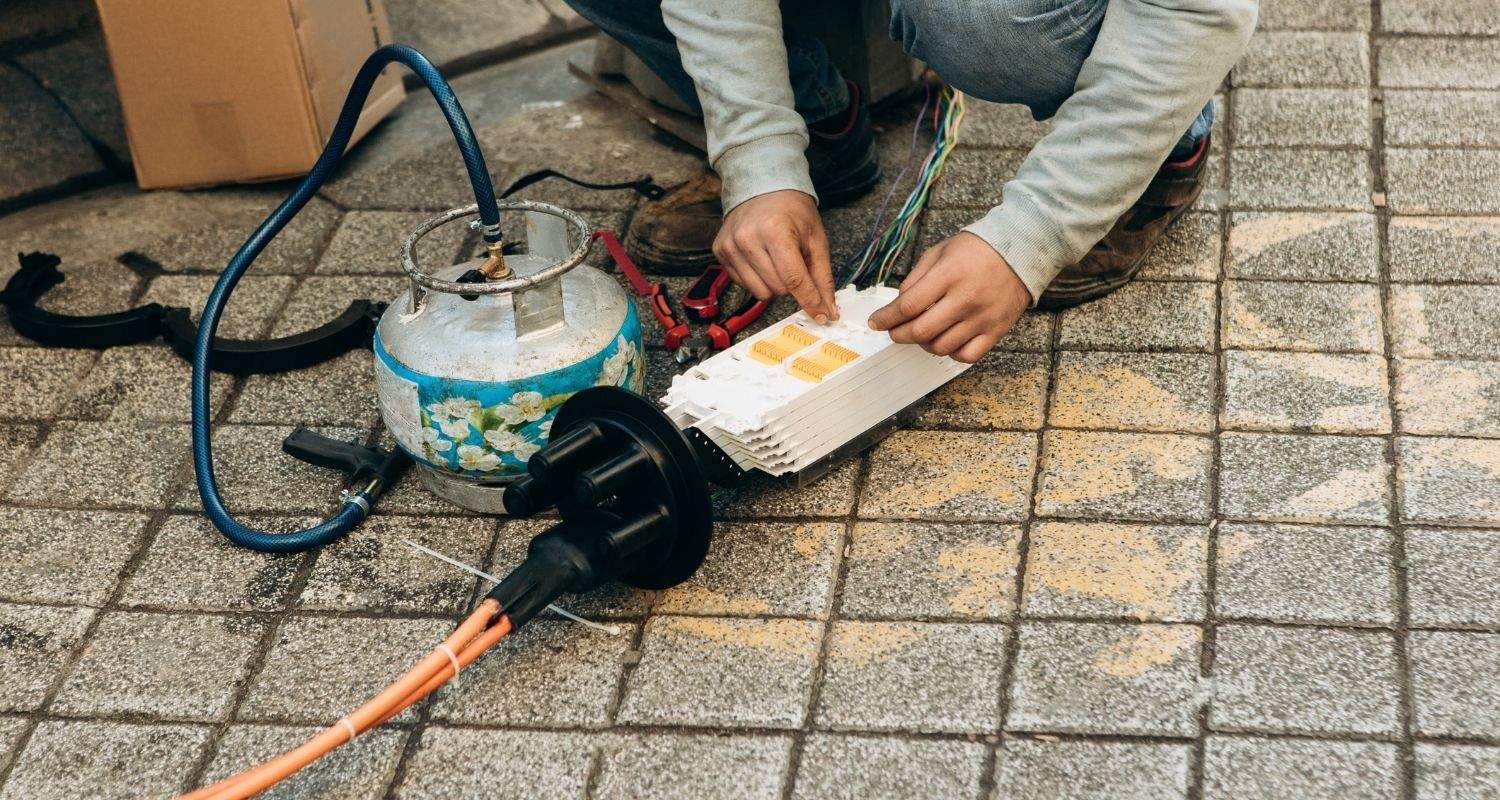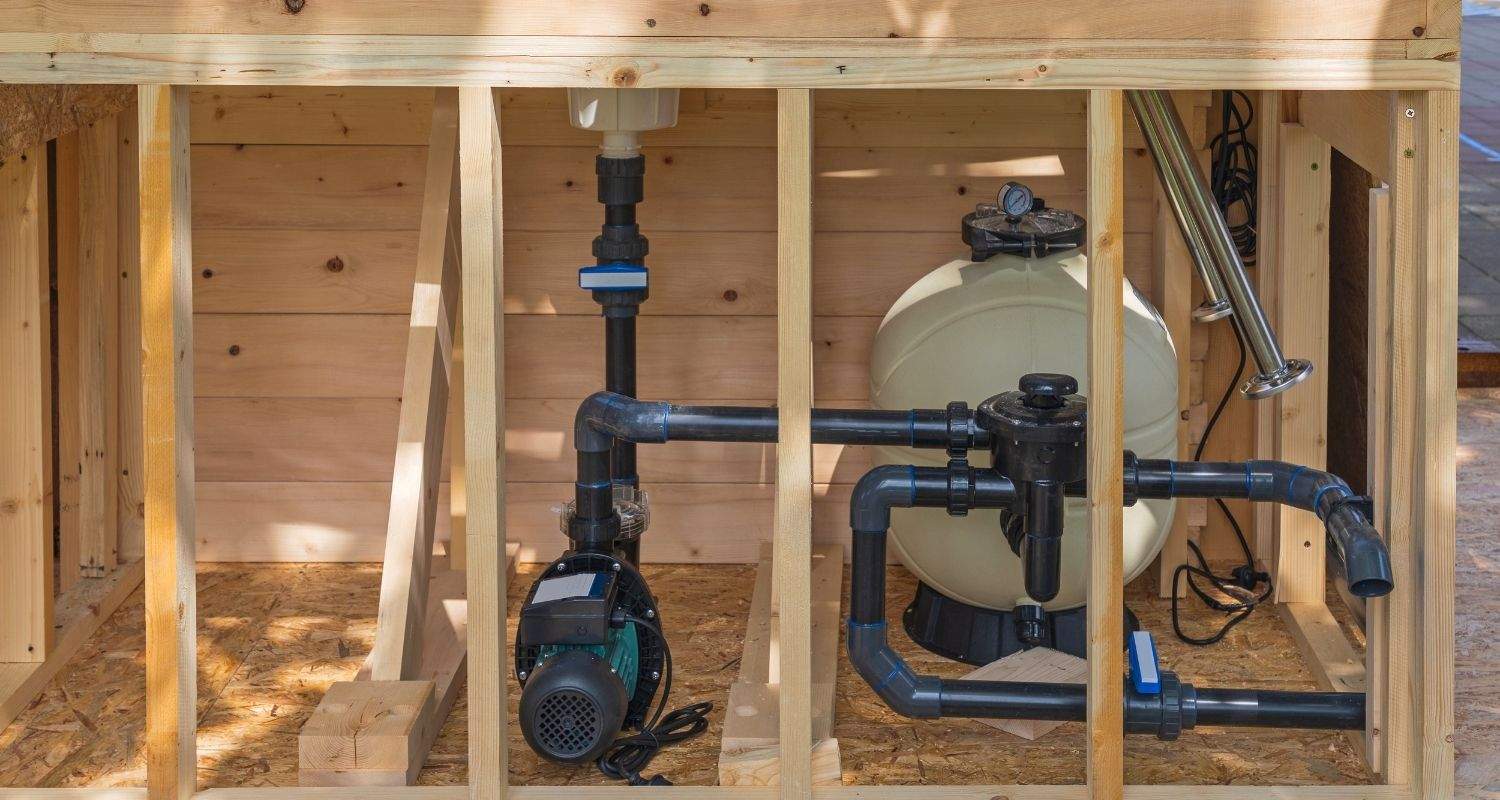Table of Contents
Swimming pool pumps assist in pool maintenance by circulating the water inside the pool, which helps keep it clean. You should reciprocate by taking care of your swimming pool pump to keep it operating effectively. Keep the following suggestions in mind to keep your swimming pool pump functioning efficiently.
Pool Pump Problems
Leaky Pump
A leaky pool pump is a much greater danger to your pool’s enjoyment than most other factors. The majority of pool equipment is hidden away in the backyard corner. But this is an issue since significant leaks sometimes go undiscovered for extended periods. If you’ve ever been out of town for a week and returned to an empty pool, you’ll understand. Never, ever let a leak go unchecked. Any leak in the filtering system must be quickly remedied. Leaks do not self-correct and will rapidly deteriorate. Usually, a leaky pool pump is repairable by re-plumbing the unit.
Outdated Pump
Occasionally, significant pump components (or the whole pump) must be replaced. If your pump is more than 5 years old, we strongly advise you to consider replacing it entirely. Pool pumps manufactured today are mostly composed of a polymer which can deteriorate over time. Cracks in pump pots and volutes can have a disastrous effect on the performance of your pool. The consequences of an abandoned, empty pool may be severe. After a heavy rain, empty ponds may be forced out of the earth by the rising soil. So regularly inspect your equipment and make repairs to any component that’s not functioning correctly or is leaking. This will save you a lot of time and aggravation in the long run.
Checkpoints Before Contacting a Pool Professional
Air in the Pump Basket
Swimming pool pumps are built and manufactured to function in an airless environment, enabling the pump to generate the required vacuum. Unwanted air often accumulates in the pump basket and can be readily seen if you’re using a pool pump with a transparent top designed to reveal these problems. A loose intake fitting is one of the most prevalent causes of air entering your pump basket. Your inlet fitting can contract in size as a result of excessive heat exposure, or as a result of your contractor installing the inlet fitting without using a sealant. Additionally, if the water level is too low, the skimmer weir is stuck in the “up” position, or the pump basket is not correctly attached. In either case, air can accumulate in the pump basket, reducing the pump’s filtering performance, delaying it from reaching prime, and even allowing harmful air to build up in the pool filter.
Excessively Noisy Pump Motor
It’s not usual for your pool pump motor to make an excessive amount of noise. You’ll know since you’ll have noticed the unique sound your pool pump produces prior to it becoming too noisy. Pool pumps often make a buzzing sound rather than a shrieking sound, indicating that something is amiss.
The Motor Hums but Doesn’t Run
Occasionally, your pool pump will create the correct humming sound but will not start. Pool pros often refer to this as a “frozen motor”; this is when rust has developed between the stator and rotor of your pool pump’s motor. Rust causes the motor to freeze and become immobile, resulting in the low hum and inability to start. This frequently occurs at the start of the pool season, when you start the engine for the first time after a lengthy hiatus.
Motorized Pool Pump
When your pool pump starts up and then shuts down, this is referred to as a “cycling” pool pump motor. Pool pump motors work at an average temperature of roughly 140 degrees Fahrenheit, making them quite hot to the touch. Anything over this can cause the motor to overheat and shut down. Ascertain that the engine has sufficient airflow, since this can easily result in overheating. Dust away any debris, if feasible, to allow the engine to breathe.
No Power
Additionally, you may encounter a pool pump motor that does not start at all, which various factors may cause. To begin, ensure that the cables connecting the pool pump to the outlet are in good shape. Any damage can result in electrical problems. Following that, inspect for infestation; clean it immediately if ants or bees have built nests on your pool pump. Finally, verify that there is electricity. It is possible that the outlet is dead and the wall outlet is the cause.
Need a pool pump repair in the Abbotsford area? Speak with one of your friendly professionals at Gregg Electric. We’ll be happy to fix your problem. Visit us online or call us at (604) 557-4734 today.





